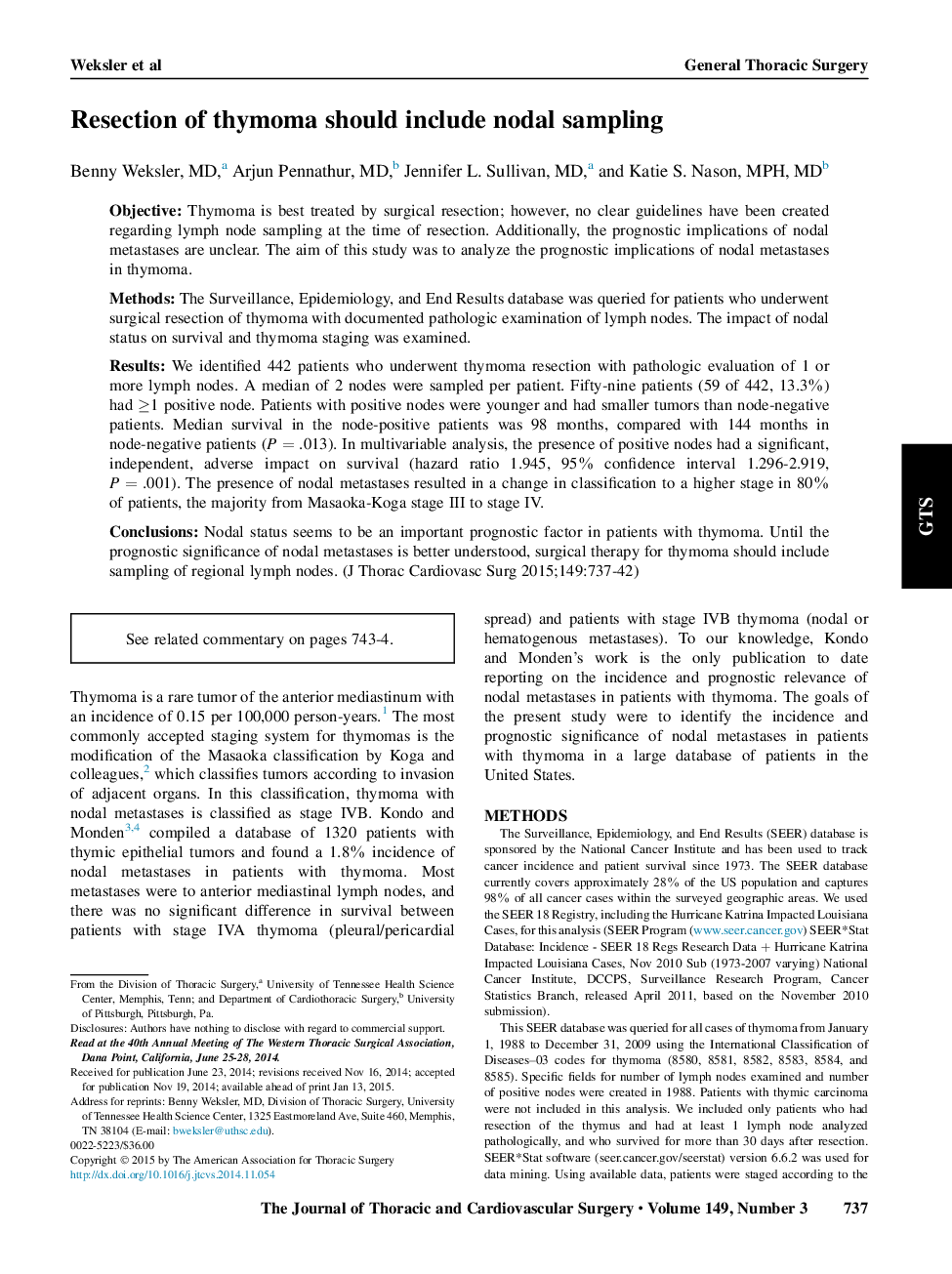| Article ID | Journal | Published Year | Pages | File Type |
|---|---|---|---|---|
| 5988870 | The Journal of Thoracic and Cardiovascular Surgery | 2015 | 6 Pages |
ObjectiveThymoma is best treated by surgical resection; however, no clear guidelines have been created regarding lymph node sampling at the time of resection. Additionally, the prognostic implications of nodal metastases are unclear. The aim of this study was to analyze the prognostic implications of nodal metastases in thymoma.MethodsThe Surveillance, Epidemiology, and End Results database was queried for patients who underwent surgical resection of thymoma with documented pathologic examination of lymph nodes. The impact of nodal status on survival and thymoma staging was examined.ResultsWe identified 442 patients who underwent thymoma resection with pathologic evaluation of 1 or more lymph nodes. A median of 2 nodes were sampled per patient. Fifty-nine patients (59 of 442, 13.3%) had â¥1 positive node. Patients with positive nodes were younger and had smaller tumors than node-negative patients. Median survival in the node-positive patients was 98 months, compared with 144 months in node-negative patients (P = .013). In multivariable analysis, the presence of positive nodes had a significant, independent, adverse impact on survival (hazard ratio 1.945, 95% confidence interval 1.296-2.919, P = .001). The presence of nodal metastases resulted in a change in classification to a higher stage in 80% of patients, the majority from Masaoka-Koga stage III to stage IV.ConclusionsNodal status seems to be an important prognostic factor in patients with thymoma. Until the prognostic significance of nodal metastases is better understood, surgical therapy for thymoma should include sampling of regional lymph nodes.
